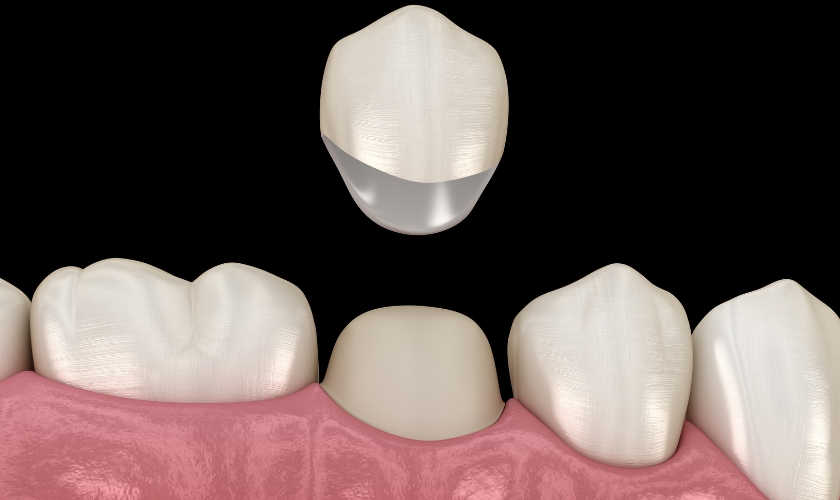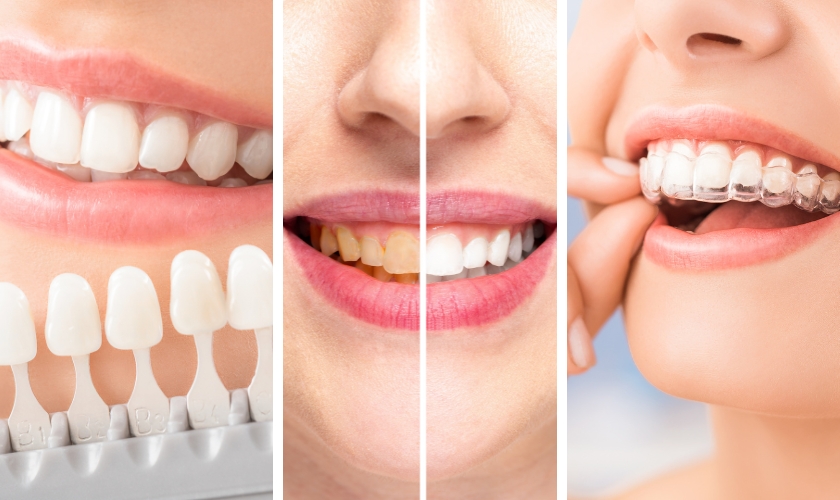Which Treatment Is Best To Fix A Broken Tooth?

Bad Breath Even After Brushing Twice. What To Do Next?
January 10, 2023
What Will Happen If A Root Canal Infection Is Not Treated?
January 18, 2023A broken tooth is an unfortunate problem that can cause a lot of pain and discomfort. Fortunately, there are multiple treatments available to fix a broken tooth. In this article, we explore the four most common treatment options to fix a broken tooth and explain which one may be best for you.
Everyone experiences a broken tooth at some point in their lives, whether it be from an accident or an injury. It can be very painful and cause serious complications if not treated immediately. There are various treatments available to fix a broken tooth, and this article will explore which one may be the best for you.
1. Bonding
This is a relatively simple and inexpensive fix for a broken tooth. Bonding involves applying a special material, usually made from composite resin, to the damaged part of your tooth to fix it and make it look like new again.
Advantages of Bonding
Bonding is a quick fix that does not require any special tools or processes. It can usually be completed in one office visit, and it is relatively painless as there is no need for anesthesia. Furthermore, the process itself is pretty straightforward and simple to do.
Disadvantages of Bonding
Bonding is not the most durable fix and may not last as long as other treatments. Furthermore, it does require regular maintenance to ensure that it remains intact, so you may need to get your bonded tooth checked regularly by a professional.
2. Veneers
Veneers are thin shells of either porcelain or composite materials that are bonded to the front of a tooth. They cover up any damage or discoloration and can help fix a broken tooth, as well as improve its appearance.
Advantages of Veneers
Veneers are more durable than bonding and will last much longer, sometimes even up to 10 years. Furthermore, they are more aesthetically pleasing and can even improve the overall appearance of your teeth.
Disadvantages of Veneers
The process of getting veneers is much more complicated than bonding and can be quite expensive. Additionally, it requires anesthesia to get them applied onto your tooth, so it can be a bit more uncomfortable than bonding.
3. Crowns
A crown is a cap that covers the entire visible portion of a tooth. It can fix any broken or cracked teeth as well as prevent further damage from occurring.
Advantages of Crowns
Crowns are very durable and strong which means that they can fix and protect a broken tooth for many years. Furthermore, the process of getting a crown is relatively painless and does not require anesthesia.
Disadvantages of Crowns
Crowns are much more expensive than bonding or veneers, and the process to get one can take multiple office visits and be quite time consuming.
4. Root Canal
A root canal is a procedure in which the dentist removes any infected or decayed tissue from the inside of the tooth, fixes it, and then seals it up. It can fix a broken tooth as well as prevent further damage from occurring.
Advantages of Root Canal
Root canals are very effective at fixing a broken tooth and preventing further damage from occurring. Furthermore, the process is relatively painless and does not require any anesthesia.
Disadvantages of Root Canal
Root canals are more expensive than bonding or veneers, and the process to get one can take multiple office visits and be quite time-consuming.
Conclusion
Depending on your situation, there are various treatments available to fix a broken tooth. Bonding is an inexpensive fix that can be done in one office visit but may not last as long as other treatments. Veneers give a more aesthetically pleasing fix, but they are more expensive and require anesthesia. Crowns are a strong fix that can protect your tooth for many years, but they can be quite costly. Finally, root canals fix the internal structures of your tooth while also preventing further damage from occurring, but they are time-consuming and expensive as well. In conclusion, it is important to consult with a professional dentist to determine which option is best for you.
FAQs:
Q: What is the best fix for a broken tooth?
A: The best fix for a broken tooth depends on your situation and can be determined by consulting with a professional dentist.
Q: How long do different treatments last?
A: Bonding is not the most durable fix and may last up to 5 years, while veneers can last up to 10 years. Crowns are strong and will protect a broken tooth for many years, while root canals fix the internal structures of your tooth as well as prevent further damage from occurring.
Q: How much do different treatments cost?
A: Bonding is the least expensive fix, while veneers, crowns, and root canals are more costly. It is important to consult with a professional dentist to determine which option is best for you and your budget.




